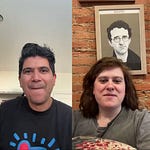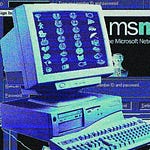AI Agents to do your shopping for you, driver-less Waymo cars to take you to work, note-taking apps to attend multiple meetings for you at the same time: These days, it can seem like our obsession with using technology to be more efficient (whatever that really means) has reached a fever pitch.
But who’s in control here? The humans using these tools, or the tech itself?
And when we use these tools to become more productive, who’s actually benefiting?
Ten years ago, media theorist Douglas Rushkoff (who you might remember from our episode on the escapist fantasies of Silicon Valley oligarchs) published a book called Program or Be Programmed: 10 Commands for the Digital Age, an examination of how the internet was going to reconfigure the daily fabric of our existence. His discussion of the various affordances of digital technology and how they were poised to transform reality in their own image wasn’t just prescient (think: how digital technologies are biased away from the local and toward…
















